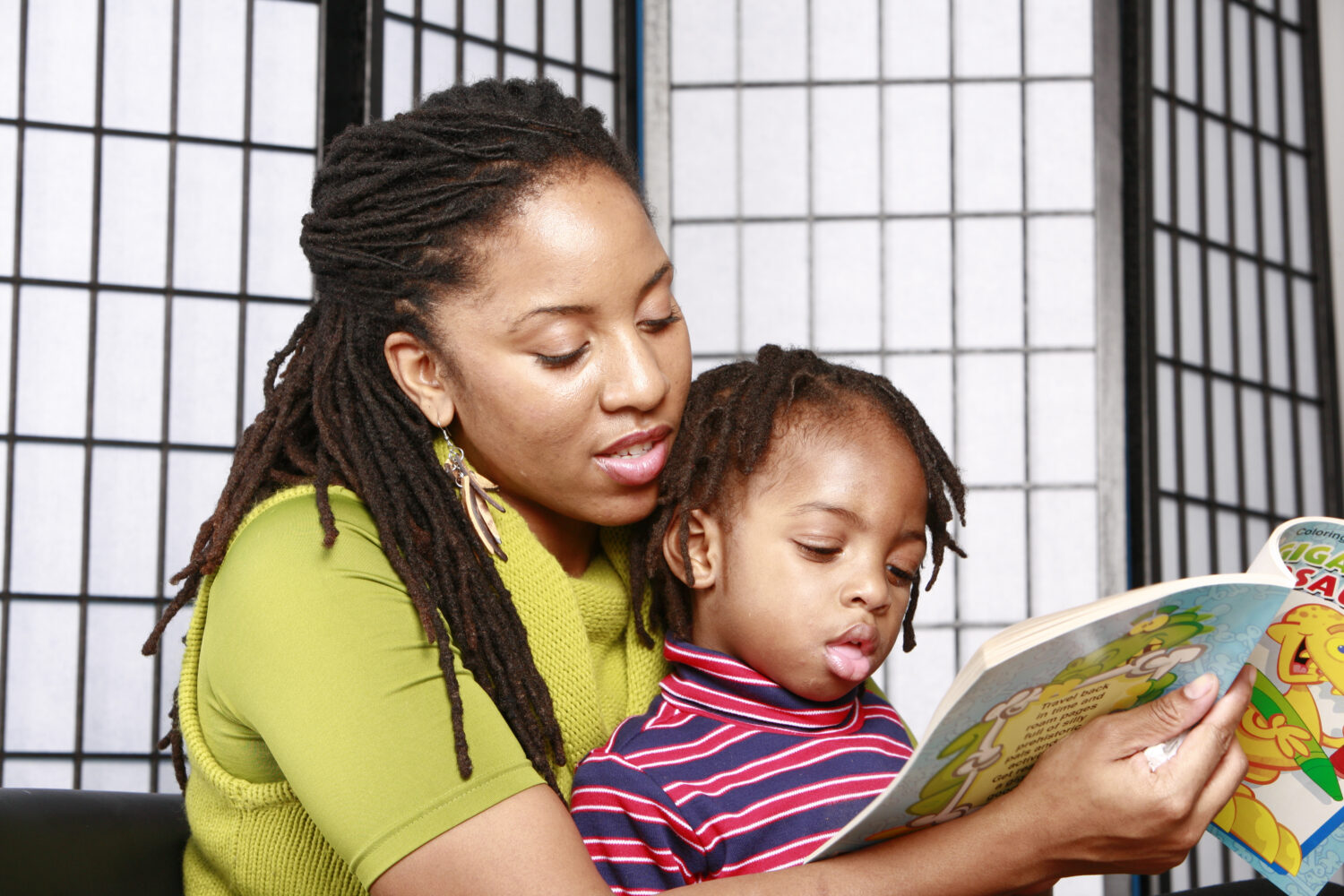Why full-day kindergarten matters
Full-day kindergarten (FDK) is beneficial for children, parents, and teachers. Last year, less than half (41.3%) of Colorado children met all kindergarten entry expectations. At later grades, academic gaps become increasingly harder to close, making access to early learning through full-day kindergarten and preschool a more affordable and effective approach to ensuring Colorado children are prepared to succeed in school and in life.
Foundations of learning.
The foundations of learning include four core mutually-reinforcing skills — social-emotional, self-regulation, oral language & early literacy, and early math. Reducing instruction in one or more will result in a wobbly foundation. There is evidence that students who receive extra support in the non-academic skills (e.g., self-regulation) perform better in core academics and vice versa.
Teachers make the difference.
Additional hours for kindergarten will be most impactful if classroom teachers have the knowledge and skills to appropriately guide young learners. Especially at this age, knowledge of child development, teaching practices for all types of learners, and strong family engagement is critical to creating an optimal learning environment.
Parents prefer FDK.
In a 2005 study of full-day kindergarten programs in Delaware, 98% of parents whose children are enrolled in FDK said they would choose it again, and 72% of half-day kindergarten parents wish they had chosen FDK, in retrospect. Full-day kindergarten gives teachers time to get to know their students and identify and address their learning challenges early.
Ready schools.
Thoughtful efforts to ready schools for young learners and their families are the key to protecting the gains realized by implementing FDK. Colorado requires individualized school readiness plans for every child. Transition practices for students entering and exiting kindergarten can ensure that families continue to engage in their child’s learning — a critical factor in academic achievement — as well as build upon the child’s prior gains and proactively and appropriately address ongoing needs.
Positive outcomes
Quality full-day kindergarten has shown to have a significant positive effect on academic achievement, college attendance rates, and higher earnings in adulthood.
Common misrepresentations
Fade out fallacy.
Some studies indicate kindergarten outcomes can be short-lived, while others show increased scores in third grade, among other, longer-term benefits, such as higher graduation rates. Important non-cognitive skills tend to persist, which may explain long-term impacts (e.g., higher earnings). Fade-out isn’t inevitable if leaders approach all early grades with intentional efforts to align and bring continuity to preschool through third grade.
Academics vs. play.
Some label kindergarten the new first grade as a result of down-grade pressure to infuse a more academic focus. Kindergarten teachers often report feeling pressured by high expectations concerning children’s abilities exiting kindergarten. Studies do show that academic content in kindergarten is linked to strong performance in later grades. However, experts agree that content delivered without attention to how children learn best — through play, collaborative inquiry, and differentiated instruction — is a mistake. Kindergarten education is not an either/or experience. An effective classroom includes both developmentally appropriate learning opportunities and content.
About Early Milestones Colorado
We are an independent organization helping to advance innovative solutions that improve policies and practices in early childhood development. We work with state and local partners to exchange ideas, share resources, and create lasting, positive change for children.
References
Amsden, D., et al., (2005). Delaware Pilot Full-Day Kindergarten Evaluation: A Comparison of Ten Full-Day and Eight
Part-Time Kindergarten Programs, School Year 2004–2005. Newark, DE: Delaware Department of Education.
Atchison, B. & Pompelia, S. (2018). Transitions and Alignment: From Preschool to Kindergarten. Denver, CO: Education Commission of the States.
Bassok, D., Latham, S., & Rorem, A. (2016). Is Kindergarten the New First Grade? AERA Open.
Blair C, Raver CC (2014). Closing the Achievement Gap through Modification of Neurocognitive and Neuroendocrine Function: Results from a Cluster Randomized Controlled Trial of an Innovative Approach to the Education of Children in Kindergarten. PLoS ONE 9(11): e112393.
Child Trends Data Bank (2015). Full-day Kindergarten: Indicators on Children and Youth. Bethesda, MD: Child Trends.
Claessens, A., Engel, M., & Curran, F. C. (2014). Academic Content, Student Learning, and the Persistence of Preschool Effects. American Educational Research Journal, 51(2), 403–434.
Colorado Department of Higher Education (2019). Colorado’s Achievement Plan for Kids (CAP4K) 2019 Annual Legislative Report. Denver, CO: Colorado Department of Higher Education.
Cooper, H., Allen, A. B., Patall, E. A., & Dent, A. L. (2010). Effects of Full-Day Kindergarten on Academic Achievement and Social Development. Review of Educational Research, 80(1), 34–70.
Engel, M., Claessens, A., Watts, T., & Farkas, G. (2016). Mathematics Content Coverage and Student Learning in Kindergarten. Educational Researcher, 45(5), 293–300. Denver, CO: Education Commission of the States.
Gibbs, C.R. (2014). Experimental Evidence on Early Intervention: The Impact of Full-Day Kindergarten. Charlottesville, VA: Batten School of Leadership and Public Policy.
Government of Newfoundland and Labrador Early Childhood Learning Division, Department of Education (2011). Literature Review: Developing a Provincial Early Childhood Learning Strategy.
Le, V. N., Schaack, D., Neishi, K., Hernandez, M. W., & Blank, R. (2019). Advanced Content Coverage at Kindergarten: Are There Trade-Offs Between Academic Achievement and Social-Emotional Skills? American Educational Research Journal.
Lovell, R., Kochanek, J., Mathers, C., and Burke, M. (2009). Snapshots of Indiana’s Full-Day Kindergarten Programs Before and After the State’s Funding Increase for the Program (REL Technical Brief, R EL 2009–No. 013). Washington, DC: U.S. Department of Education, Institute of Education Sciences, National Center for Education Evaluation and Regional Assistance, Regional Educational Laboratory Midwest
Kauerz, K. (2010). PreK-3rd: Putting Full-Day Kindergarten in the Middle. New York, NY: Foundation for Child Development.
Morrow, L.M., Strickland, D.S., & Woo, D.G. (1998). Literacy Instruction in Half- and Whole-Day Kindergarten. Newark, DE: International Literacy Association.
Parker, E., Diffey, L., & Atchison B. (2016). Full-Day Kindergarten: A Look Across the States. Denver, CO: Education Commission of the States.
Shore, R. (2009). PreK-3rd: Teacher Quality Matters. New York, NY: Foundation for Child Development.
Walston, J.T., and West, J. (2004). Full-day and Half-day Kindergarten in the United States: Findings from the Early Childhood Longitudinal Study, Kindergarten Class of 1998–99 (NCES 2004–078). U.S. Department of Education, National Center for Education Statistics. Washington, DC: U.S. Government Printing Office.
West, J., Denton, K, & Germino-Hausken, E. (2000). America’s Kindergartners. Washington, DC: National Center for Education Statistics.




